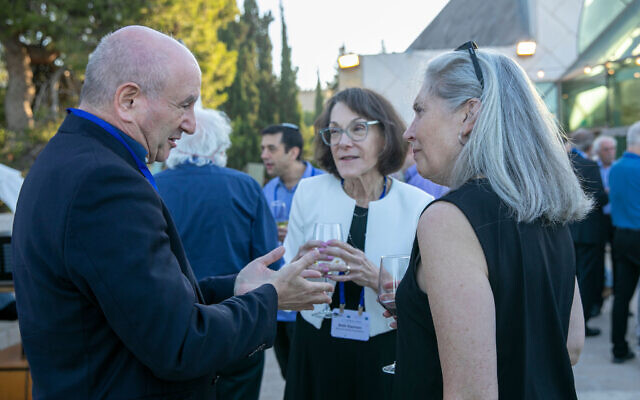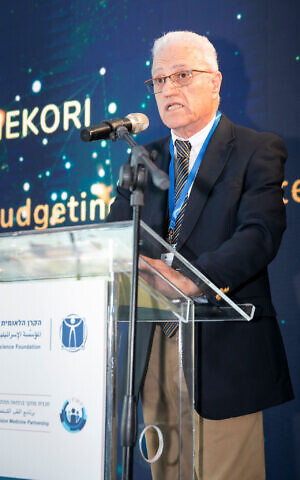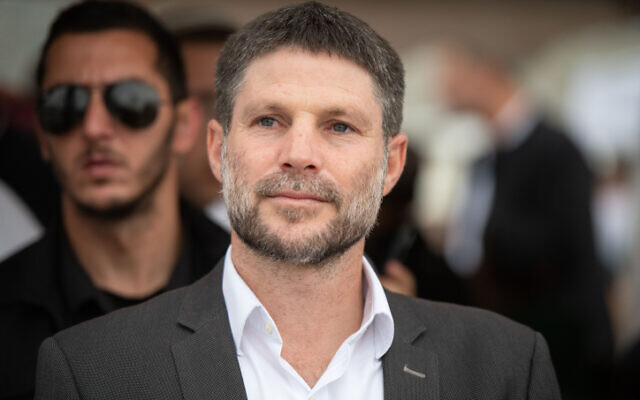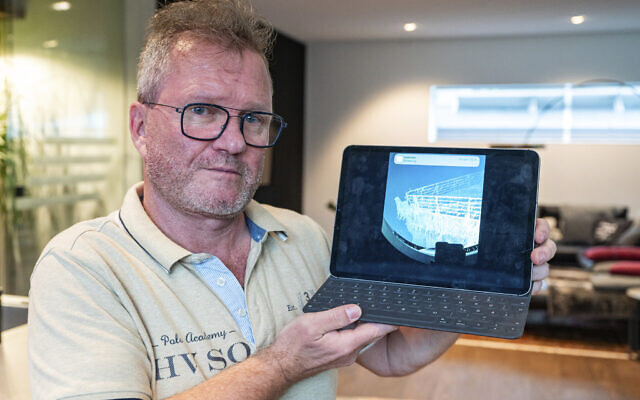Israel Science Foundation announces new program to support physician-researchers
$100 million MAVRI initiative funded by government and philanthropists will create positions and carve out time for doctors who also want to work in the lab
Renee Ghert-Zand is a reporter and feature writer for The Times of Israel.
A five-year, $100 million program aiming to increase the number of physician-researchers in Israel was launched this month in a financial partnership among Yad Hanadiv, the Klarman Family Foundation, and the Planning and Budgeting Committee of the Council of Higher Education.
The initiative, called MAVRI (Hebrew for “one who heals”), will award broad-scope research grants and will support research training during medical residency and postdoc training for physicians. It will also create opportunities for physician-scientist startups in hospitals, as well as dual appointments for physician-researchers in universities and hospitals.
The goal is to create a leading cadre of MD-PhDs to translate basic research into clinical research, and then move it into clinical practice to achieve improved outcomes for patients.
The Israel Medical Association, and 8400 – The Health Network, a nonprofit organization helping to coordinate the health tech ecosystem in Israel, will also participate in MAVRI. The program will operated by the Israel Science Foundation, the country’s main body supporting breakthrough basic science, in part through providing grants towards cutting-edge research on human health and disease.
There is no lack of Israeli physicians who are capable and interested in conducting research, but the current situation is unlike that in the United States, where university hospitals usually allow doctors to conduct clinical or lab research.
“In the US, you have tenure or a post-residency and you have two days per week in clinic and three days doing research. This almost doesn’t exist in Israel,” said Prof. Gabi Barabash, former CEO of Tel Aviv’s Ichilov Hospital and former director general of the Health Ministry.

“This is because in Israel the clinic is so stressed, so overwhelmed…There is such a mismatch between the needs and the manpower. Whoever wants to do research is torn between their clinical duties and their research,” Barabash explained to The Times of Israel at a MAVRI launch event in Jerusalem on June 14.
MAVRI builds on the success of the Israel Precision Medicine Partnership (IPMP), an earlier project supported by the same funding partners. MAVRI will begin this fall as IPMP winds down by 2026.
IPMP supported multidisciplinary, bottom-up research on human biology with medical relevance, with an emphasis on genomics, inter-individual variation, and medical records. It encouraged collaborations between basic researchers, clinicians, and HMOs; responsible access to medical data and biological samples; and rapid and open data sharing.

Thus far, over four grant cycles from 2019 to 2022, IPMP received 360 applications from teams totaling 1046 researchers — 563 from universities and 447 from hospitals. Of the proposed projects, 50 (14%) were funded, with an average grant size of $1 million. The median age of the grant recipient was 52, and 29% of the grantees were women.
The collaborations resulted in over 120 publications in peer-reviewed publications, 58 new collaborations, and 58 additional prestigious grants received as a result of the IPMP projects. The projects involved 240 MSc, PhD, and postdoc students, and resulted in seven startup companies and 10 patents.

While the presenters at the MAVRI launch event lauded the successes of IPMP, they noted that MAVRI is designed to address some of the challenges that emerged. Among these are the need to expand the scope of biomedical problems for investigations beyond genomics and medical information, and to support younger researchers. MAVRI also aims to include more women.
“To be a physician-researcher in Israel requires an additional period of training which often takes place abroad. We know that it is always more difficult for women to do so. The MAVRI program includes support for such a training period in Israel, in top research laboratories,” said IPMP and MAVRI scientific director Dr. Ayelet Zamir.
There is also a desire to see physicians taking more of a lead in the research projects. In many cases, the IPMP projects were driven by university scientists, with the doctors joining in.
In his remarks at the MAVRI launch, Prof. Yossi Mekori, chair of the planning and budget committee at Israel’s Council for Higher Learning, said that hospitals and universities would set up lab spaces for physician-researchers in hospitals. MAVRI will help pay for the necessary equipment.
According to MAVRI director and former ISF chair Prof. Benny Geiger, some participating doctors will be permitted to devote 50 percent of their time at their hospital to research, with no adverse effect on their salary. Others will split their time between their hospital and a university, with the latter paying a portion of their salary.
An international advisory committee will choose the 30 research projects per year that will receive between $500,000 and $1 million. The participating physician-researchers will not receive any additional funding, but they will also not face salary reductions for the time taken from clinical work with patients.

Prof. Daniel Zajfman, chair of the academic board of the ISF, said that MAVRI was an important part of “the development of a community of physician-researchers with a defined and supported career track within the Israeli medical system.”
“MAVRI will excavate this level of physicians that today because of either the system’s demands or their wish to be clinicians, are not fulfilling their talents and capabilities,” Barabash said.
“These new grants are designed to secure a very important, bright edge of physician-researchers that will allow them to progress and do more research for the benefit of medical science,” he said.
Full disclosure: The Klarman Foundation’s Seth Klarman is the chairman and capital partner of The Times of Israel.










